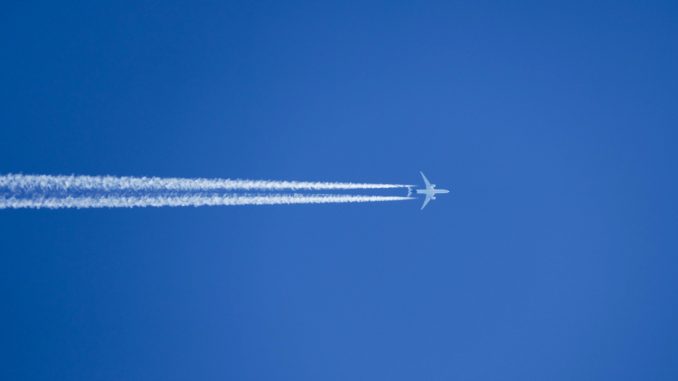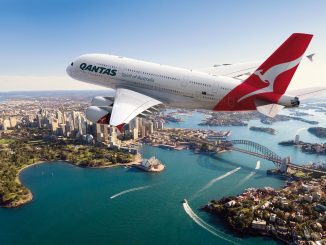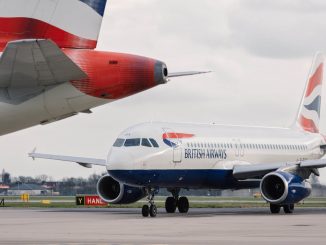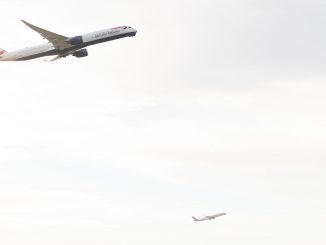
About two weeks ago, Delta Air Lines announced that it would retire its last McDonnell-Douglas MD-88 and MD-90 aircraft. Last Friday, the carrier announced that the final flights for both types would take place on June 2nd with a special DL80 and DL90 flight for each type. Aviation enthusiasts and frequent fliers were quick to book these special flights and celebrate the retirement on board these flights, even I would have flown to the United States just to be on one of those flights.
In every other year this wouldn’t have been an issue, but I think we are all very aware that 2020 is not a normal year. According to the Johns Hopkins University, there are currently more than 4.6 million confirmed cases of Covid-19 worldwide. Of these 4.6 million, over a quarter are located in the United States and contrary to other countries with a large number of cases like Spain, Italy or Germany, this number is still rising at an exceptionally quick pace. And these four countries all have one thing in common: They are slowly starting to return to a pre-Coronavirus life, despite reporting hundreds or even thousands of new cases every day. While businesses start opening up again, people are eager to go out, meet with friends, go on holiday and have some fun after being asked to stay home for several weeks.
Stressing an already stressed system
As the virus spread around the world, airlines were quick to reduce capacity by an unprecedented 90% to accommodate the virtually non-existing demand for flying, in part caused by government-issued travel restrictions that were supposed to slow the spread of Covid-19. Passenger screening data from the Transportation Security Administration (TSA) of the United States shows the rapid decline in air travel over the past two months, on April 14 TSA agents screened only 87,534 people compared to 2,208,688 people on the same date in 2019. Most of these 87,534 travelers were essential workers and people returning to their home countries. While the TSA doesn’t disclose the purpose of passenger’s trips it is highly unlikely that there were a large number of people flying for fun or non-essential business.
Ever since April 14, these numbers have been steadily increasing and on May 14, 2020, less than a month after this record low, a total of 234,928 people were screened. As businesses start to open up, so do hotels in popular tourist destinations like Jacksonville, Florida luring people with cheap prices to spend a few days at a sunny beach instead of sitting in front of a computer screen working from home.
The only two US-airlines actively blocking middle seats to allow for distancing between passengers onboard aircraft are Delta and Alaska (the effectiveness of these measures is questionable though). Other large airlines either recommend or require passengers to wear masks on board its planes. As passenger numbers onboard a single flight start to rise, so does the chance that one person onboard has contacted Covid-19. If you have been infected with Covid-19, it can take up to 14 days to develop symptoms but you can already spread the virus to other people during this timeframe. This could be especially fatal if you were to go on a, say five day vacation to a packed beach in Florida during these 14 days, and can infect dozens of other people.
Full flights are increasing by the day
Over on Twitter, more and more people are complaining about flights being full and no social distancing measures being enforced, in addition to passengers without appropriate face masks. One of these complaints was made by a medical worker traveling with a group of 25 other doctors and nurses, who were given free flights by United from San Francisco to New York to help battle the pandemic in New York City. In normal times, United operates over a dozen daily flights with high-capacity aircraft between Newark and San Francisco but has reduced this to two flights a day on a Boeing 737.
Understandably, airlines are burning money like they never did before and want to cut costs by operating less flights at the lowest possible costs and planes are the most financially viable when they are full. With blocked middle seats this obviously is not possible, but under the Cares-Act, US-airlines are still required to operate to most cities they served pre-Covid-19. To accommodate the almost non-existent demand but still fulfill their Cares-Act obligations, services were consolidated and operate on smaller aircraft than before. This ultimately increases the viability of these routes but also increases the health risk for all people onboard.
As passengers numbers are climbing, more and more people will be traveling on airplanes for more and more reasons which are not considered essential. Airlines however are not increasing their capacity as most flights are still operating at load factors less than 50%.
Airlines are torn between two worlds
It is in the public interest for airlines to make sure that passengers are traveling safely and right now this includes social distancing, reducing customer interaction and requiring passengers to wear masks. Airlines on the other side need to make sure they are reducing cash-burn and be vary that once the Cares-funding ends on September 30 they are financially stable. Airlines therefore need to decide whether to reduce losses or loose money but keep passengers safe.
According to CBS news, one major US airline is “seriously considering” to end its social distancing measures onboard, citing increasing demand. While it has not been studied yet if blocking middle seats really helps to prevent the spread of Covid-19, many people are feeling safer this way than being packed in a tight metal tube with 200 other people who could be infected and 100 of them are not wearing face masks.
Lufthansa for example has already decided to stop blocking middle seats but the German flag carrier also makes face masks mandatory for its passengers and if possible tries to seat passengers in a way to accommodate for some social distancing. With increasing demand this will be harder to achieve.
Stay home, stay safe
Coming back to the example with the Delta retirement flights, you still should not be traveling for non-essential reasons, including to celebrate an aircraft retirement on a special flight full of like-minded people. I can totally understand the excitement to be on the very last flight of an aircraft type but right now our priorities should be to stay safe and keep our most vulnerable and valued family members and friends safe and as hard as it is, this does include to keep the number of flights we take at a bare minimum.
Going out of your way to fly just for fun on a ‘special’ flight during a global pandemic is not only very selfish, it is also endangering the lives of hundreds of other people who are in the same airport or on the same plane with you, but maybe not for fun like you are. You can always be infected but don’t know about it yet and that is exactly what makes flying so dangerous right now.
We will fly again, but right now our focus should be on the health of ourselves and everybody around us. This is the best way to safely open up as soon as possible and see our elderly relatives, friends and colleagues again in real life and not via a video call.
Jan-Hendrik is an aviation enthusiast from Germany, loves to travel the world and fly on as many aircraft as possible. His first flight was with a Condor 757 to Spain and has been interested in aviation ever since. His fields of expertise are aircraft accidents and passenger experience (PaxEx).



